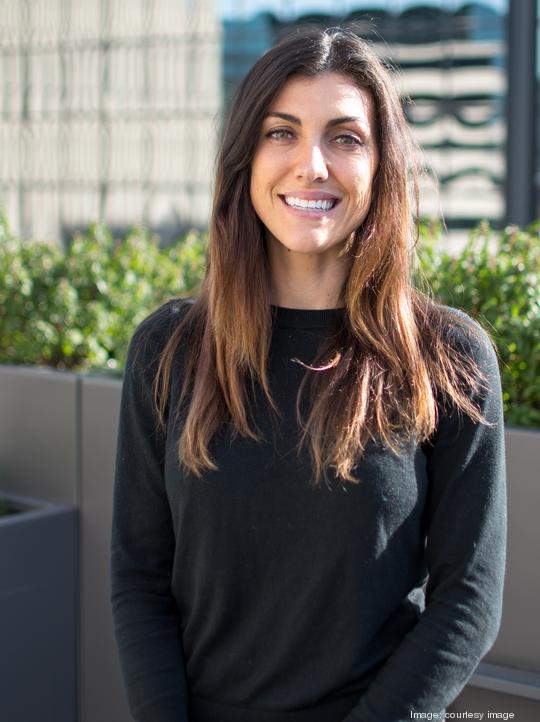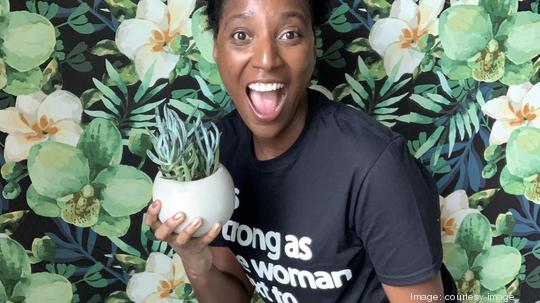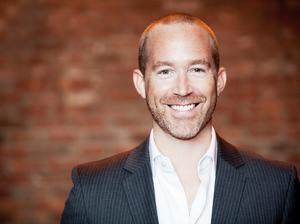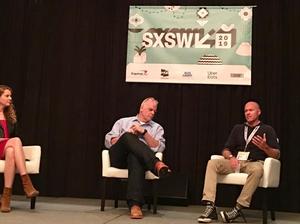
When Big Tech looks to relocate a headquarters or open a new office, there are hundreds of considerations. Site selection committees are formed, tax credits are pursued, market analysis checked and re-checked. Then, maybe a couple years later, there's a ribbon cutting.
For startups, it's a breeze by comparison.
Take, for example, Portland-based e-commerce startup City Shoppe. Founder and CEO Ash Cintas launched the company during the pandemic. While a few team members are in Portland, others are based in Los Angeles, New York and other places. But Cintas never intended to have a fully remote team.
"I'm old school," she said. "I like everyone in an office and seeing everyone all day."
So when Cintas started getting serious about picking a city, she decided to have the small team of eight employees vote on City Shoppe's future HQ location.
Austin edged out Boulder, and now the team is preparing to move to Texas this spring, with plans to add 15 or more employees and expand its e-commerce platform for small businesses.
"It's like everything just worked out very well, so everyone is pretty excited," she said.
City Shoppe is an e-commerce platform that partners with local small businesses and makes it easy for anyone to shop locally from wherever they are. Currently, the platform features Portland, Austin and Brooklyn, although it has partner businesses in Seattle and several other cities that aren't as prominently positioned.
The startup offers customer service, marketing, payment processing and a web page on its platform for each business. Currently, it doesn't charge fees for the first month. After that, City Shoppe charges a 10% transaction fee. The site helps small businesses reach a wider audience, and reduces the need to pay for ads on Instagram and other social channels.
City Shoppe is self-funded, so far, but is planning to raise a round of funding soon.
Cintas said City Shoppe is a bit of a test case for how and why people like to shop at local, small businesses. Her thesis is that people like to support businesses in specific areas, such as their hometowns or places they've previously lived, because they want to support the community.
"That's what excites me is, when someone from Minnesota finds a great product from an Austin vendor and purchases it," she said.
City Shoppe's website also allows shoppers to filter for businesses that are female founded, Black owned, LGBTQ owned, eco friendly and several other factors.
"I truly believe the real reason people want to to buy local is the community connection aspect," Cintas said. "And that is about the people behind the product. So we really want to be able to represent the small businesses for who they are, not just what they sell."
Building a business through a pandemic and civil unrest
One of those small business founders is Sarah Miller, founder of cement pottery startup Awkward Auntie.
Miller started Akward Auntie in 2018. At first, it was a blog about her experiences as an aunt — she has seven nieces and nephews, and she considers herself an honorary aunt to many of her friends' children.
When she moved into a new apartment, she continued her tradition of hand making an item for her new place. This time, she got a silicone mold to make a planter.
She quickly realized that everyone seems to like planters and they're great gifts. She started adding dyes to create more colorful pots. Then she started making candles for those who aren't so great with plants. And friends and family kept asking for them.

It kept growing from there, and she started offering her products at a farmers market.
She kept growing sales, until something unexpected happened: The pandemic hit and farmers markets were shut down.
"It really did change everything," she said. "It made me make more of a pivot to online sales."
Then something else unexpected happened: George Floyd was killed by police in Minneapolis and huge portions of the nation took action by protesting and, also, by promoting buying from Black-owned businesses.
The event made many people realize the struggles of Black people in the U.S. and started offering support.
"Maybe it came from a level of guilt. Maybe it came from a level of 'I don't know what else to do, how do I lend my support? I can lend it with my dollars here'," she said.
June became the busiest month in Akward Auntie's history. Miller went from roughly 10 orders a month to more than 60 in June.
"There's an internal struggle with that sometimes," she said.
She knows what she's making is cool and that many people love the planters and candles.
"But now I'm getting all of this attention, and it doesn't feel like it's because of my work," she said. "It feels like it's a knee-jerk reaction. So there's kind of that imposter syndrome that sets in for a minute. Do I deserve this? Am I just getting this out of people feeling guilty?"
But the pace of sales didn't slow down after June, and Miller realized she was worthy of the increased business.
Miller was largely depending on Instagram for exposure, and she got a new wave of attention when Our ATX, a directory of women-led organizations, shared her work and made her pottery part of a giveaway contest.
Then, more recently, City Shoppe reached out to Miller and said her work is fantastic and worth promoting to more people.
"It's a whole new group of people," she said. "It's people who are saying 'we love these cities so much we want to get the things that represent those cities.' That's an important group of people."
The startup also included Awkward Auntie in a blog post and a giveaway for Black History Month. That support is especially key for founders like Miller, who also has a full-time job.
"The support, the idea that they're helping businesses like mine with resources we simply don't have right now ... the fact that they're willing to do that and they're excited to do that ... that is huge for somebody like me," she said.







